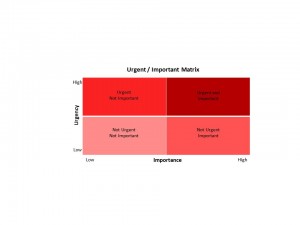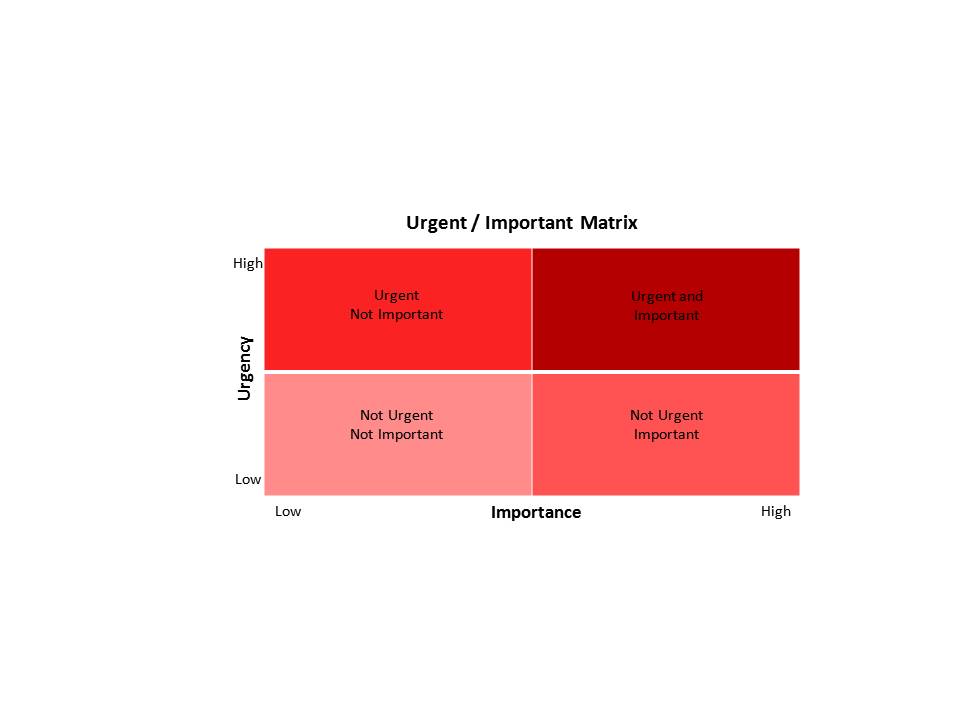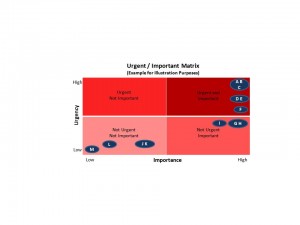By Salah Bugazia.
Washington, DC 30 January:
When everything is important, nothing is important. Governments, organizations and individuals must proactively set their priorities . . .[restrict]in order to allocate and leverage limited resources effectively. Libya is faced with a long and growing list of daunting challenges. Stakeholders have many needs and they all want their needs fulfilled now. While most of these needs are important, the degree of their importance varies and not all of them require the same sense of urgency.
Deciding to postpone tackling a specific issue does not necessarily mean that the issue is not important. This is a simple concept that decision makers and politicians must communicate very clearly to their stakeholders and constituents.
It is almost impossible and counter-productive for an organization or nation to take on more than it is capable of handling. How can decision makers identify the issues that must be addressed now versus those that maybe postponed to a later time? Proven prioritization techniques can be helpful in answering this question and reaching agreement among stakeholders. One simple technique is the Urgent/Important Matrix.

This four-quadrant matrix helps decision makers see a clear and simple view of their priorities by placing issues or goals in one of four quadrants based on the issue’s degree of importance and urgency. Different variations of this matrix can be applied and may include more than four urgency/importance quadrants. For the purpose of this article, the four-quadrant matrix is used to describe the concept.
Before working with this matrix, decision makers compile a list of all items requiring prioritization and assign each item on the list a level of importance and urgency (typically a number between 1 and 10). The table below provides an example, for illustration purposes, using some of the issues on the minds of many Libyans. This is only an example and does not include a comprehensive list of goals or issues. Additionally, the importance and urgency rankings in this example are purely subjective and are not based on an objective or data-driven analysis. In reality, decision makers must utilize proven ranking techniques that take in consideration stakeholder and subject matter expert input in an objective manner.
This prioritization list shows that while several issues may have the same level of importance, they don’t necessarily have the same level of urgency. Once the list is complete, it is then a matter of placing each item in the appropriate quadrant on the Urgent/Important Matrix quadrant. The following matrix reflects the urgency/importance ranking of each item listed in the table above:
Based on the matrix above, decision makers must give their utmost attention and focus to all items in the top right quadrant (Urgent and Important). Items in the bottom right quadrant (Not Urgent and Important) should be evaluated more thoroughly to determine which ones may require immediate attention. Items in the bottom left quadrant (Not Urgent and Not Important) should be put on hold at this time and revisited at a later time.
The Urgent/Important Matrix provides decision makers with a dashboard view of the issues presented to them and their priority levels. Using such simple techniques is extremely helpful in identifying the issues most aligned with strategic goals and stakeholder needs, as well as understanding and managing complex problems and securing alignment among decision makers and stakeholders.
While we are going through this massive transformation, Libyan officials can benefit from utilizing prioritization techniques to analyze problems, and focus on those that will prove to have the greatest impact and add the most value.
Salah Bugazia practices Project Management Consulting and Training. He lives with his wife and two children in Washington, DC.
www.linkedin.com/in/salahbugazia [/restrict]







